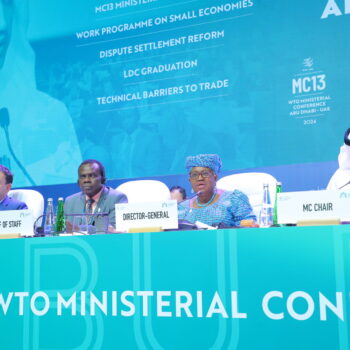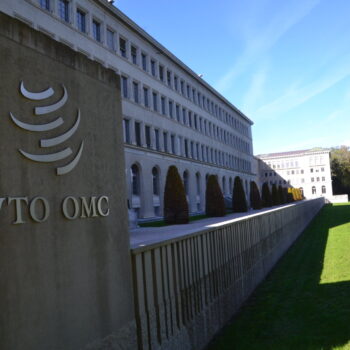- Today, Ofgem has announced that the UK energy bill price cap will increase to £1971 from April 2022.
- Civil society responds by saying that the current package of emergency measures from government falls short of preventing a fuel poverty emergency, and calls for further targeted support for the most vulnerable households – as well as a long-term plan to permanently reduce our reliance on fossil gas.
Story
Following the announcement of the price cap rise and the government’s package of measures in support, 19 civil society groups – including Age UK, Save the Children, the WI and WWF – have issued the following statement:
The cost-of-living crisis is being driven by soaring gas prices. Today’s price cap announcement – confirming that energy bills are set to rise to £1,971 per year from April – represent a price hike which is untenable for most households, and a disaster for those already in fuel poverty.
While we welcome that the government will offer some targeted support for the most vulnerable households; the scope and scale falls short of what is needed to prevent a fuel poverty emergency in the UK. We urge the government to increase support to more accurately reflect the scale of the crisis – ensuring all vulnerable households have access to financial support and advice from April.
Steps must be taken to address both the symptoms and the causes of the energy bills crisis. This means prioritising longer-term measures to reduce exposure to future energy bills crises by significantly reducing UK reliance on expensive and polluting fossil gas. Ahead of the Spring Statement, we urge the government to invest in a nationwide green home retrofit scheme – allocating £3.6bn for energy efficiency this Parliament and fulfilling Conservative Manifesto commitments for fuel poor and low-income households.
This is supported by the following organisations:
- Age UK
- Chartered Institute of Environmental Health
- E3G
- Energy Saving Trust
- End Fuel Poverty Coalition
- Friends of the Earth England, Wales and Northern Ireland
- Greenpeace UK
- Green Alliance
- Groundwork UK
- MCS Charitable Foundation
- New Economics Foundation
- Parents For Future UK
- Positive Money
- Save the Children
- Solutions to Tackle Energy Poverty
- The WI
- WWF
- 350.org
- 38 Degrees
Available for comment on call for measures to prevent fuel poverty emergency
Juliet Phillips, Senior Policy Advisor at E3G
m: +44 7548 097061, Juliet.Phillips@e3g.org
Quotes on call for measures to prevent fuel poverty emergency
Juliet Phillips, Senior Policy Advisor at E3G says
“The UK’s exposure to volatile gas markets is fuelling a cost-of-living crisis. While today’s announcements take some edge off the burn, further targeted support for the most vulnerable households is urgently needed to prevent catastrophic outcomes. Furthermore, without a long-term plan to reduce demand for fossil gas, emergency measures can only act as a sticking plaster. We must also start now towards building a greener, fairer and resilient system as the only long-term solution for preventing future gas crises.”
Simon Francis, Coordinator from the End Fuel Poverty Coalition, said:
“Today’s catastrophic price cap rise will force hundreds of thousands more households into fuel poverty from April. The Government’s proposals for support will do little but offset part of the most recent rise. The reality is that fuel poverty has been increasing at an exponential rate and only a full package to support people – especially the most vulnerable – will be sufficient in the short term. Longer term, the Government must come good on its promises to help transform housing into safe, warm, energy efficient homes.”
Tamara Sandoul, Policy and Campaigns Manager, Chartered Institute of Environmental Health said:
“This has already been a difficult Winter for many households across the UK, with a cocktail effect of higher inflation and higher energy prices. This huge rise in the cost of energy will push many more people into fuel poverty and could put them at risk of health conditions caused by living in a cold home.
The Government also needs a long-term investment strategy into retrofitting homes to make these much more energy efficient and work to reduce its reliance on fossil fuels going forward.”
William Baker from Solutions to Tackle Energy Poverty said:
“This announcement couldn’t come at a worse time. It coincides with a substantial increase to National Insurance, will inevitably exacerbate the cost of living crisis many low income households are facing and will increase reliance on food banks and fuel vouchers – already at record levels. We need a comprehensive package of Government support to both address high energy prices and improve the energy efficiency standards of our homes.”
Connor Schwartz, Climate Lead at Friends of the Earth, said:
“The skyrocketing price of gas will now push people into precarious financial positions, and spells disaster for those already struggling to meet the rising cost of heating their home. The government must ensure sufficient support for anyone already finding it hard, or who are at imminent risk, from these hikes.”
“We need to address the root cause and that means ending the cause of the crisis: reliance on gas. No mistake, this will be a year-on-year problem unless the government is radical now. The best time to invest in renewables and roll out a huge home insulation programme was 20 years ago, governments didn’t do it then, the next best time is right now.”
Mike Thornton, Chief Executive, Energy Saving Trust, said:
“We know the additional increase to the energy price cap, alongside higher living costs, will be extremely worrying for people across Britain. With the number of households who find themselves in fuel poverty expected to rise, Government must expand on emergency measures to support those most in need.
As well as the need for immediate action and short-term support, the current crisis emphasises the importance of improving the energy efficiency of the UK’s housing stock in the long-term. Alongside this, we need to invest significantly in renewable energy – including low carbon heating. Energy efficiency and more renewables are the best ways to protect everybody against volatile gas prices and rising bills in the long-term.
Tackling the current energy crisis must also go hand in hand with meeting net zero ambitions. Reducing our reliance on fossil fuels will minimise our exposure to the volatility of the global energy market and shape a greener and more affordable energy future. Alongside many other mission-led organisations, we’re asking for committed Government investment and clear action plans to scale up home insulation and renewable energy so we can be less reliant on gas in the future.”
Angus O’Brien, Campaigner at 38 Degrees, said:
“Today’s price cap announcement is catastrophic news for millions up and down the country. As gas prices have spiralled, consumers have been forgotten – yet almost 40,000 members of the public have recently voiced their opposition to rising prices in Ofgem’s recent price cap consultations.
“It’s time for the Government to take full responsibility, starting by taxing the energy giants making billions from this crisis, and investing to insulate – against the cold and future price rises.”
Graham Duxbury, CEO of Groundwork UK says
“This announcement is deeply concerning for households that are already feeling the brunt of rising bills and the continuing financial effect of the pandemic. Every day our energy advisors meet families unable to stay warm because of soaring energy prices. Financial support for vulnerable households is essential, and needs to be accompanied by trusted, independent energy advice to help people make their money go further. In the long-term, we need to work together to improve home insulation and roll out greener heating methods, so that we can all afford to stay warm while meeting our carbon reduction commitments.”
David Cowdrey, Director of External Affairs at MCS said:
“Today’s announcement will plunge millions more into fuel poverty and fuel stress. Tackling the current energy crisis is critical and the Government needs to accelerate away from fossil fuels as fast as possible and work to reduce electricity prices. The Government should consider moving Environmental Tariffs off our electricity bills and placing this into general taxation. It would be a fair tax on those who are earning and also help protect those of low incomes and reducing electricity bills.”
Joe Tetlow, Senior Political Advisor, Green Alliance:
“With global gas prices pushing household energy bills to unaffordable levels, it is right the government has stepped in to protect the most vulnerable households and help people with the cost of living. But there is a danger the government thinks this is job done, when the price cap is predicted to rise further and gas prices staying high for some time. We urgently need a long-term plan to better insulate us from volatile and polluting gas heating and power, including overcoming barriers to more rapid renewables deployment, getting on with decarbonising the power sector, scaling up investment in home energy efficiency and switching to clean heat alternatives.”
Notes to editors
- E3G is an independent climate change think tank with a global outlook. We work on the frontier of the climate landscape, tackling the barriers and advancing the solutions to a safe climate. Our goal is to translate climate politics, economics and policies into action. About – E3G
- For further enquiries email press@e3g.org or phone +44 (0)7783 787 863


